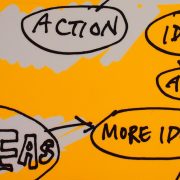Intellectual/Developmental Disabilities (IDD), Aging and Health by Dr. Alicia Thatcher, MD and Mandy Boersch, RPN, CDDN
Redesigning Healthcare with Heart: IDD, Aging and Health
CBC Feature: The HELP Model – Redesigning Healthcare with Heart – August 28, 2025
Mandy Boersch, Creative Options Regina’s Director of Health, joined CBC Morning Edition alongside Dr. Alicia Thatcher to share their passion for improving healthcare for people with intellectual and developmental disabilities.
Together, they discussed the real-life gaps they’ve witnessed, how the HELP model is guiding their work, and why compassionate, person-centered care can make all the difference.
On a chilly afternoon during the Gentle Teaching International Conference, something deeply human unfolded—not just a presentation, but a story of life, love, loss, and the urgent need to redesign how we care.
Dr. Alicia Thatcher, a physician passionate about inclusive health, and Mandy Boersch, RPN, CDDN, a psychiatric nurse whose life journey has been shaped by her sister Jill, brought us into a world where medicine meets meaning—and where care must be reimagined through the lens of relationship and Gentle Teaching.
Their session, “Intellectual/Developmental Disabilities (IDD), Aging and Health,” wasn’t just about diagnoses and data. It was about people. It was about what it means to grow older with a disability in a system that often overlooks you—and what we can do to change that.
From Family to Fieldwork: A Personal Journey
Mandy began by grounding the room in her own story. She grew up alongside her sister Jill, who was born with a rare chromosomal difference and lived with significant health concerns. Jill’s life was filled with hospital visits, blood transfusions, and barriers—but it was also filled with fierce love.
Mandy swore she’d never go into healthcare, but Jill’s journey quietly rewrote her future. She went from business school to psychiatric nursing, from burnout to purpose—and from a sister to a champion for health equity. Her story of following Jill into a group home job (and eventually across the province) added warmth and authenticity to the conversation.
Meeting in Mission: The Power of Connection
It was through the maze of healthcare advocacy that Mandy met Dr. Alicia Thatcher—an introduction sparked by a psychiatrist, emails, persistence, and shared values. What began as curiosity became collaboration. And what began as professional partnership became friendship.
Mandy described Alicia as the doctor her family had always been searching for—someone with deep knowledge, unshakable respect, and a drive to make inclusive health more than an idea.
Together, they’ve become a team that asks not “What’s the matter?” but “What matters?”
Aging with IDD: Gaps, Risks and the Call for Change
Dr. Thatcher laid out the stark realities. People with intellectual and developmental disabilities (IDD) face:
- 30-day readmission rates and emergency visits are significantly higher than the general population
- A 6.5x higher chance of being hospitalized unnecessarily
- A 17.5x higher chance of living in long-term care
- And nearly 4x higher risk of dying before age 75—often from preventable causes
As life expectancy increases, more people with IDD are aging into a system that is simply not prepared to support them.
The statistics are sobering. But Alicia brought clarity and tools to make meaningful change possible.
The HELP Model: A Framework for Understanding Change
Together, Alicia and Mandy introduced the HELP model—a simple, accessible tool to help teams assess when someone’s behaviour, health, or emotional state changes. Rather than jumping straight to medication or crisis response, HELP encourages us to ask questions about:
- Health – Are there hidden medical issues (pain, infections, GI concerns, untreated conditions)?
- Environment and Supports – Have routines shifted? Has a trusted person left? Is there sensory overwhelm?
- Lived Experience – Could past trauma or life transitions be affecting today’s behaviour?
- Psychiatric Concerns – Are mental health challenges emerging or shifting?
Each domain is approached not with judgment but with curiosity. Not “What’s wrong with them?” but “What’s going on for them?”
And always—safety first.
When Behaviour is a Clue, Not a Problem
One powerful example shared: a person experiencing outbursts and psychosis-like symptoms was later found to have a severe urinary tract infection, not a psychiatric crisis. Once treated, the behaviours resolved.
Another shared example involved dental pain, which presented as paranoia and confusion. These aren’t rare occurrences—they’re reminders that atypical presentations of common issues are, in fact, typical for many people with IDD.
Behaviour is communication. And when we listen well, healing becomes possible.
Proactive Tools: From Screenings to Stretching
Dr. Thatcher shared accessible resources like:
- Nuts and Bolts RD toolkit for aging and syndrome-specific health guidance
- NTG-EDSD Dementia Screener to identify early signs of dementia in people with IDD
- Health Watch Tables and preventive care checklists for tracking concerns
- Hypertension logs and even stretching as a powerful blood pressure intervention
Simple, consistent tracking—like bowel movements, pain, mood, or sleep—can give teams and clinicians the data needed to act early and appropriately.
The tools are available. The missing piece? Widespread training and awareness.
From Reaction to Relationship
One of the session’s most powerful takeaways was this: Crisis shouldn’t be the only catalyst for care.
So much of the current system waits for things to break down, then responds with medication or hospitalization. But relational approaches, early recognition, and team-based curiosity can reduce trauma and strengthen well-being before a crisis ever happens.
As Mandy put it, “If we’re not asking questions early, we’ll miss the chance to actually help.”
The Real Risk: Doing Nothing
For Dr. Thatcher, the work is about bridging the gap between what’s available and what’s needed—and about pushing back on ableist, ageist, or dismissive practices.
The Clinical Frailty Scale, for instance, is still widely used, but it often misrepresents people with IDD. A 50-year-old with disabilities might be denied access to geriatric services, despite having the same needs as someone twice their age.
It’s time to move from age-based cutoffs to needs-based care.
And when we talk about aging, we must do so with context, compassion, and clarity.
Carrying Jill’s Legacy Forward
The presentation closed with a quiet moment of vulnerability. Mandy shared that her sister Jill passed away due to several of the Fatal Five conditions often seen in people with IDD: aspiration, constipation, dehydration, seizures, and sepsis.
Her story is both a heartbreak and a call to action.
Because Jill deserved better, and so do the many others aging into systems still not built for them.
In Summary: Where Do We Go From Here?
- Learn the HELP model – Use it not just to assess but to collaborate.
- Champion routine health checks – Especially annual comprehensive reviews for adults with IDD.
- Use simple tools – NTG screeners, symptom checklists, and monitoring charts make a big difference.
- Track the small stuff – Sleep, stools, mood, appetite—they matter more than we think.
- Trust the people who know the person best – Families, supports, and the person themselves.
- And always lead with love and listening.
Dr. Thatcher and Mandy reminded us that the future of inclusive healthcare isn’t just about medical systems—it’s about relationships. It’s about seeing, hearing, and honouring every person at every stage of life.
And it’s about knowing that no one should have to fight alone to be understood, supported, or safe.
























